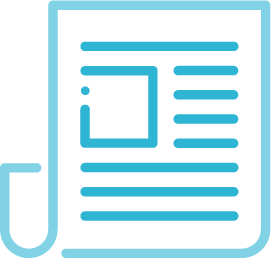Posted by Zosi Team

Your internal audit is only as good as the people completing it. Thus, the individuals selected must have the industry qualifications and auditing experience necessary to perform an effective internal audit. We’ve broken down the benchmarks for well-trained, qualified internal auditors by personal attributes, knowledge and skills, as well as experience and training below, so that you can get the most return on your internal audit investment.
Personal Attributes
We’re all human, and we’re all different. It’s impossible to evaluate everyone using the same criteria. When evaluating the personal attributes that follow, you must take into account the differences and personalities of the people on your team.
First and foremost, your internal audit team must be ethical. This means choosing individuals that are fair, honest, and discreet in their approach. Secondly, internal auditors should be open-minded. There’s more than one way to approach a process. Internal auditors should be open to alternative approaches that could be just as effective to accomplish the same result (i.e. being in conformance with audit requirements).
Third, audits must be diplomatic. At times, audit processes may present contentious situations. An effective internal auditor is professional and able diffuse hard situations when necessary. They know the value of working together to accomplish the desired results.
A key attribute of your auditors is excellent observation skills. Auditors must be hyper-aware of their surroundings, from plant activities to equipment and people, as they perform their duties. Under this umbrella, auditors must be perceptive, versatile, and tenacious. As an auditor, you must be able to stand firm in the event of a serious finding. Doing so promotes the integrity and values of the audit process.
Lastly, auditors must be self-reliant and able to work independently. This means they know how to effectively manage their time to complete all of the work required by the internal audit process.
Knowledge & Skills
All auditors must have an understanding of basic audit principles. They must be able to plan, organize, and prioritize their time and schedule to ensure the scope of the audit is covered within the identified duration of the audit. As they go through the internal audit process they must understand how to obtain sufficient evidence, record this information, and verify their findings. Of note, internal auditors must be respectful, effective communicators.
An auditor must also have the knowledge and skills to write the audit report. This report must be thorough and well thought out, covering all information necessary to provide objective evidence for both compliance and nonconformance.
Experience & Training
Auditors must have a combination of direct field and auditing experience. This means internal auditors should have hands-on food manufacturing experience dealing with the specific product and process in question, and an understanding of how auditing principles apply to the processes undergoing the audit. To this end, auditors – especially the audit team leaders – must receive proper internal audit training to ensure they have a base knowledge of audit processes and to grow as an auditor.
Competence & Evaluation
Promoting the competence of your internal audit team is an evolving process. This could include continuous professional development, like industry seminars and events that cover changes in regulations and industry standards, as well as recertification. To maintain audit credentials, you might consider implementing a minimum number of audits performed per year. This competence should be regularly evaluated both internally and via third parties utilizing shadow audits and technical reviews. These are also opportunities to coach auditors to improve their practices. The goal of any evaluation – like any audit – is continuous improvement.
Conclusion
Put simply, it takes good auditors to produce good audits. Assembling an internal audit team that meets, at minimum, the requirements above is a first step toward performing effective internal audits. Developed by certified auditors, Zosi’s internal auditing courses teach how to build and implement a strong internal audit program. These courses benefit all skill levels, whether you’re a rookie or a pro.



 Never Miss an Update.
Never Miss an Update. 